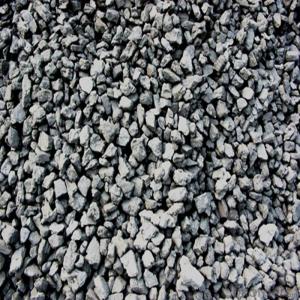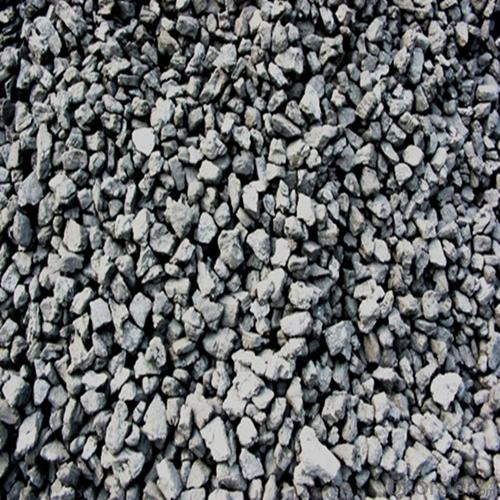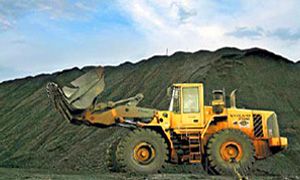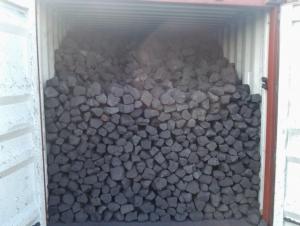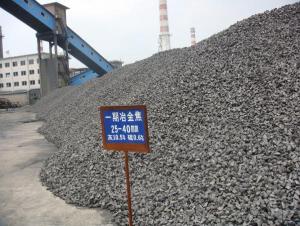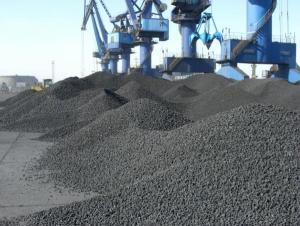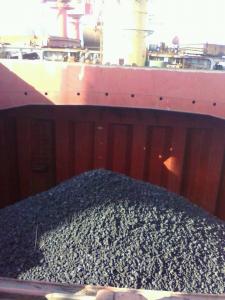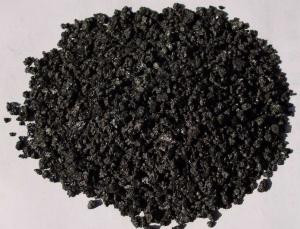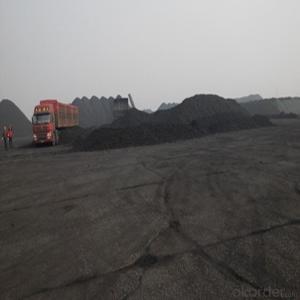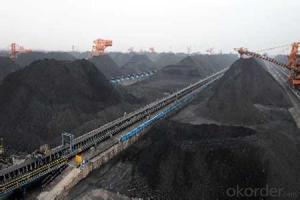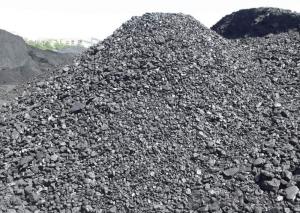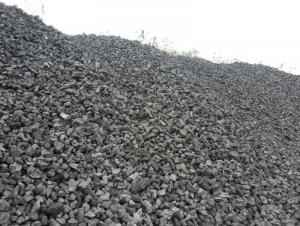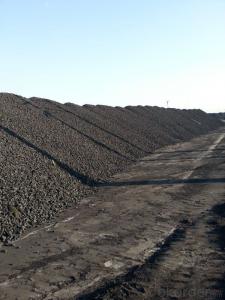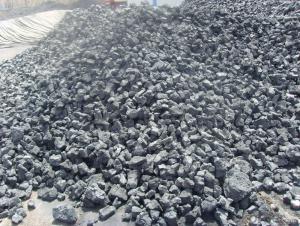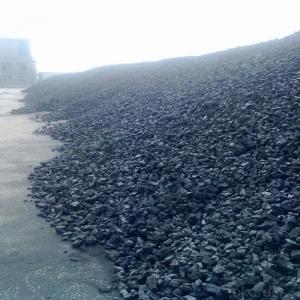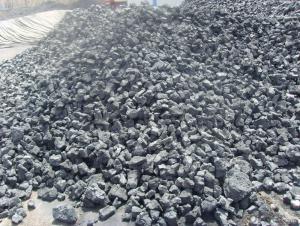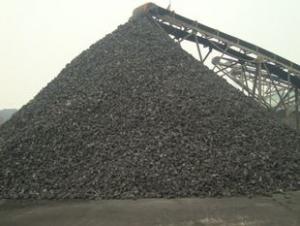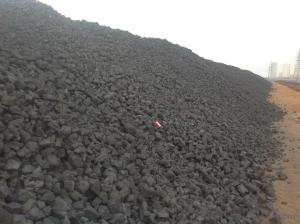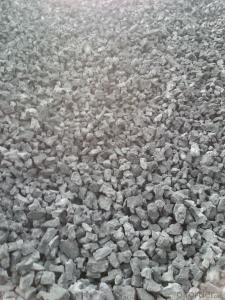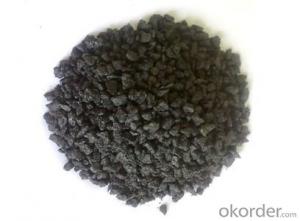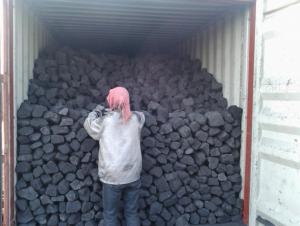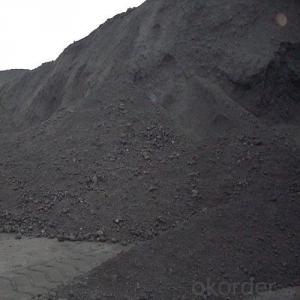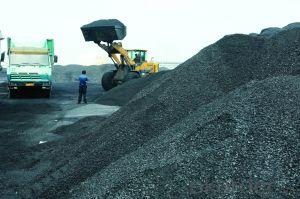Metallurgical Coke of Coke Strength after Reactivity 65
- Loading Port:
- Tianjin
- Payment Terms:
- TT OR LC
- Min Order Qty:
- 100 m.t.
- Supply Capability:
- 3000 m.t./month
OKorder Service Pledge
OKorder Financial Service
You Might Also Like
1. Structure of Metallurgical Coke of Coke Strength after Reactivity 65 Description:
Coke is made by high temperature metallurgical coke for blast furnace smelting, casting and gasification. Occurring in the process of coking after recovery and purification of coke oven gas is a high calorific value of fuel, is an important industrial raw material in organic synthesis.
Coke is mainly used for blast furnace ironmaking and used for copper, lead, zinc, titanium, antimony, mercury and other non-ferrous metal smelting of blast furnace, reducing agent, compound and the function of stock column frame.
Blast furnace with Coke instead of charcoal, which laid a foundation for the large-scale of modern blast furnace, is a major milestone in the history of metallurgy.
2. Main Features of the Metallurgical Coke of Coke Strength after Reactivity 65:
• Quality assurance
• Mutual benefit
• Preferential price
• Various choice
3. Metallurgical Coke of Coke Strength after Reactivity 65 Images:
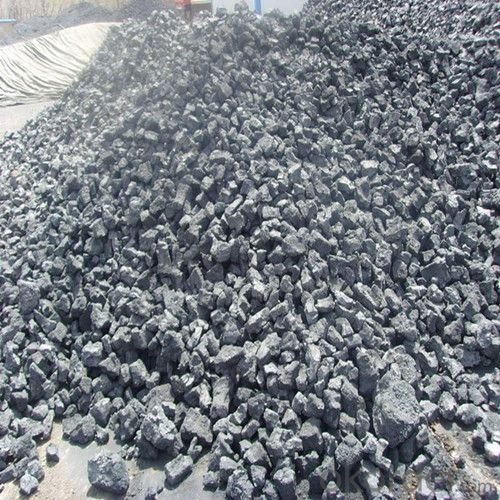
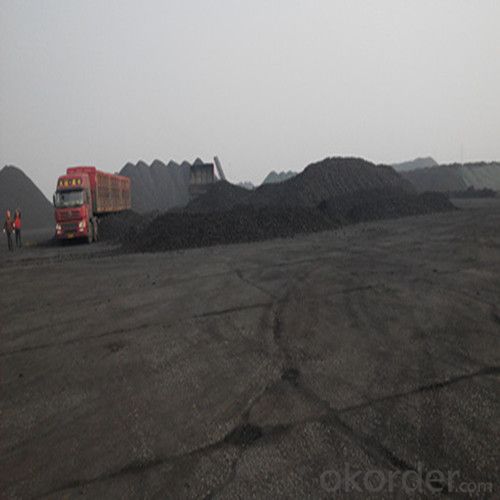
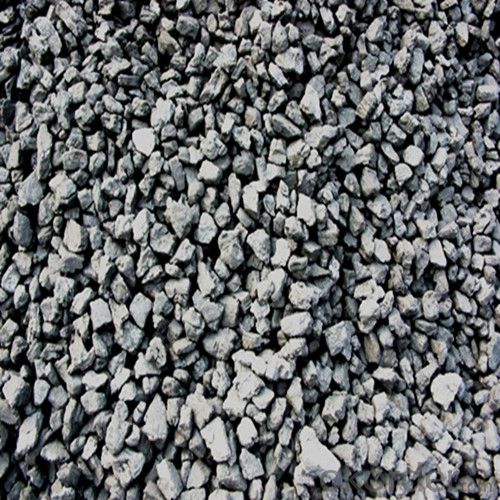
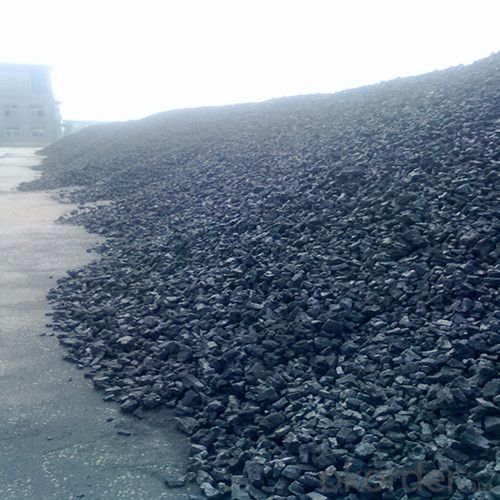
4. Metallurgical Coke of Coke Strength after Reactivity 65 Specification:
Parameters | Guarantee | Rejection |
Total Moisture (As received basis) | 5% max | |
Ash (dry basis) | 12.5% max | > 13.5% |
Volatile Matter (dry basis) | 1.5% max | > 1.8% |
Sulphur (dry basis) | 0.65% max | > 0.75% |
Phosphorus (dry basis) | 0.035% max | > 0.045% |
M10 | 7% max | > 9% |
M40 | 84% min | <82% |
CSR | 65% min | <63% |
CRI | 25% max | > 27% |
Size 30-90 mm | 90% min | |
+90 mm | 5% max | > 8% |
-30mm | 5% max | > 8% |
5. FAQ
We have organized several common questions for our clients,may help you sincerely:
1) How to guarantee the quality of the products?
We have established the international advanced quality management system,every link from raw material to final product we have strict quality test;We resolutely put an end to unqualified products flowing into the market. At the same time, we will provide necessary follow-up service assurance.
2) What are coke's main physical properties?
The average heat capacity is 0.808 kj/(KGK) (100 ℃), 1.465 kj/(KGK) (1000 ℃)
Thermal conductivity is 2.64 kj/(MHK) (room temperature), 6.91 kj/(MHK) (900 ℃);
Ignition temperature (air) is 450-650 ℃.
3) How about your company?
Our company began to export coke when China cancelled 40% of coke export tariffs and quotas on January 1, 2013. We export many kinds of coke, such as CSR60 % and CSR 62% metallurgical coke (met coke), the NUT coke of 20 to 50 mm, coke breeze of 3 to 6 mm, and so on.
- Q: Coke is how to make it? What is the use?
- Coke production has prepared the material into the coal charging car from coal tower, were sent to the furnace chamber. The gas produced by the dry distillation is sent to the chemical product recovery workshop for processing. After a coking period (from charging to pushing the required time is generally 14 to 18 hours, depending on the carbonization chamber and the width), a pusher will mature by refining coke coke machine into the coke car; coke quenching, coke is discharged into the cold coke; then screening and storage (Figure 4).The coking plant is generally composed of two coke ovens. The two coke ovens are arranged on the same central line, and a coal tower is arranged in the middle. A furnace with coke oven machinery -- corresponding charging car and coke machine, machine coke, coke quenching car and motor vehicle; also equipped with a set of facilities including coke quenching, coke quenching tower, coke quenching pump, coke powder and coke powder sedimentation tank grab, arranged in the end furnace group. The center of the coke quenching tower is not less than 40 meters from the center of the carbonization chamber. If dry coke quenching, coke oven station. The coking plant is also equipped with the necessary piping and reversing system.
- Q: Ca3 (PO4) 2, SiO2, coke and other raw materials for the production of silica gel (SiO2? NH2O), phosphorus, phosphoric acid and CH3OH, the following process raw materials comprehensive utilizationCa3 (PO4) 2, SiO2, coke and other raw materials for the production of silica gel (SiO2? NH2O (P), phosphorus, phosphoric acid and CH3OH, the following process raw materials comprehensive utilization rate is high, less waste(1) in the reaction, which belongs to the replacement reaction is ______[optional: (I), (II) and (III), (IV), (V).(2) chemical reaction equation II under high temperature of ______; solid waste can be used for ______. CaSiO3(3) reaction to be carried out in isolation and oxygen under anhydrous conditions, the reason is ______.(4) CH3OH can be used as a fuel cell fuel in strong acid medium, the electrode reaction type anode for ______.(5) pointed out that the significance of ______. (VI) in this part of the industrial production(6) written by P H3PO4, the reaction of the ______ ______.
- (1) according to the definition of replacement reaction, there are two kinds of compounds in the reaction of II, contains two kinds of compounds in the product, so it is not the replacement reaction of reactants, IV no elemental, so it is not a replacement reaction, V reaction is a chemical reaction, I and III reaction with replacement reaction conditions, so is the replacement reaction,
- Q: What is the difference between coking plant and coke plant
- Never heard of coke plant, coking plant is the production of coke products, there are other chemical products, it is estimated that you said the coke plant is the purchase of other people's desire to sell second-hand coke traders.
- Q: Why is coke used in blast furnace steelmaking?Why not use coal?
- The reason of coke used in blast furnace steelmaking:Coke is the product after the desulfurization of coal, because the removal of sulfur in coal, coal tar and other harmful substances, no longer in the process of steelmaking, the impact on the quality of steel, the formation of unnecessary ingredients.
- Q: Can the sulfur content of coke affect the casting process of nodular cast iron at 0.65?
- The high sulfur content of nodular cast iron, the most significant impact on the casting is caused by poor balling,
- Q: I now do a good job in the coke network editor, I would like to know more about coke
- (2) reducing agent.The reduction of ore in blast furnace is accomplished by indirect reduction and direct reduction. The indirect reduction is about 400 degrees centigrade. The indirect reduction is rising gas CO reduction in ore, iron oxide from high iron gradually reduced low iron until the metal iron, while producing CO2:
- Q: The sulfur content of coal and coke in general, the coking process of sulfur content of coal into the output of sulfur content of coke compared to those who are high and low?
- Of course, the sulfur content of coke is low. Coke quality requirements: two grade coke containing sulfur below 0.7%
- Q: Coke in the whole process of steelmaking in the end is what to do, just to provide heat or carbon and other substances into steel or iron?In the study of coal classification inside, one is divided into coking coal, coking coal and coke as main, and then you see is steel or iron coke must material. What is not clear. In the end, out of coal mining is mainly used to burn energy extraction, or said that coal like oil can be converted into other products, which is a coke can convert?
- 3) skeleton: smelting process in blast furnace is gas rise and decline occurred in the opposite charge of movement and interaction, the core permeability is the key operation of blast furnace. In the upper column, gas flow distribution of coke layer; in the middle of the column material, the coke from the skeleton effect, support has been melting the iron ore, the normal gas rise; in the lower column, high temperature in the solid massive existing coke and has become liquid hot metal and slag mixed together, become loose skeleton gas rising and falling iron and slag.
- Q: I work in the coking plant, so there are conditions to get coke and is burning, I would like to use coke barbecue line? Just like charcoal Mutton Cubes Roasted on a Skewer, OK? Understand the answer
- Under the condition of air isolation, the bituminous coal is heated to 950-1050 DEG C, which is finally made into coke by drying, pyrolysis, melting, bonding, solidification and shrinkage.
- Q: Mechanism of carbon and coke is not the same as the price which high?
- Now, carbon factory has been discontinued, I start the original work - cable maintenance. The first floor of the post is my hair, said all no empty words. A combination of equipment quality is too bad, and Beijing Shougang, cleaning the equipment of large and the fact they are and exactly the same. Beijing is a liar equipment. Zhang Lian do is a donkey trading, factory equipment do Ba Chau are defective, they sold to Beijing fake technology company. I was at his factory inspection equipment of Shougang crooks in the factory. They stay trapped the loss of numerous investors. I now have been unable to recover
Send your message to us
Metallurgical Coke of Coke Strength after Reactivity 65
- Loading Port:
- Tianjin
- Payment Terms:
- TT OR LC
- Min Order Qty:
- 100 m.t.
- Supply Capability:
- 3000 m.t./month
OKorder Service Pledge
OKorder Financial Service
Similar products
Hot products
Hot Searches
